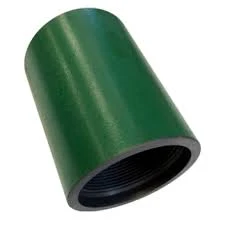- Afrikaans
- Albanian
- Amharic
- Arabic
- Armenian
- Azerbaijani
- Basque
- Belarusian
- Bengali
- Bosnian
- Bulgarian
- Catalan
- Cebuano
- Corsican
- Croatian
- Czech
- Danish
- Dutch
- English
- Esperanto
- Estonian
- Finnish
- French
- Frisian
- Galician
- Georgian
- German
- Greek
- Gujarati
- Haitian Creole
- hausa
- hawaiian
- Hebrew
- Hindi
- Miao
- Hungarian
- Icelandic
- igbo
- Indonesian
- irish
- Italian
- Japanese
- Javanese
- Kannada
- kazakh
- Khmer
- Rwandese
- Korean
- Kurdish
- Kyrgyz
- Lao
- Latin
- Latvian
- Lithuanian
- Luxembourgish
- Macedonian
- Malgashi
- Malay
- Malayalam
- Maltese
- Maori
- Marathi
- Mongolian
- Myanmar
- Nepali
- Norwegian
- Norwegian
- Occitan
- Pashto
- Persian
- Polish
- Portuguese
- Punjabi
- Romanian
- Russian
- Samoan
- Scottish Gaelic
- Serbian
- Sesotho
- Shona
- Sindhi
- Sinhala
- Slovak
- Slovenian
- Somali
- Spanish
- Sundanese
- Swahili
- Swedish
- Tagalog
- Tajik
- Tamil
- Tatar
- Telugu
- Thai
- Turkish
- Turkmen
- Ukrainian
- Urdu
- Uighur
- Uzbek
- Vietnamese
- Welsh
- Bantu
- Yiddish
- Yoruba
- Zulu
stainless pipe coupling
Understanding Stainless Steel Pipe Couplings A Comprehensive Guide
Stainless steel pipe couplings are essential components in various piping systems, providing a reliable means of connecting two sections of pipe. Widely utilized in industries such as construction, oil and gas, food processing, and water treatment, these couplings are renowned for their durability, resistance to corrosion, and versatility. This article explores the characteristics, types, applications, and advantages of stainless steel pipe couplings.
Characteristics of Stainless Steel Pipe Couplings
Stainless steel pipe couplings are crafted from stainless steel, an alloy known for its resistance to rust and tarnishing. The primary grades used in manufacturing stainless steel pipe couplings are 304 and 316. Grade 304 offers excellent corrosion resistance and is suitable for a wide range of applications. Meanwhile, grade 316 demonstrates superior resistance to pitting and chloride corrosion, making it ideal for marine environments and chemical processing applications.
In addition to their corrosion resistance, stainless steel couplings are robust and capable of withstanding high pressure and temperature. This makes them suitable for both high-temperature and cryogenic applications. Their smooth internal surfaces enhance flow characteristics and minimize pressure drops, making stainless steel couplings a top choice for fluid transport.
Types of Stainless Steel Pipe Couplings
There are several types of stainless steel pipe couplings, each designed for specific applications
1. Coupling with Threads These fittings have internal threads that allow for easy connection to threaded pipes. They are commonly used in plumbing and HVAC systems.
2. Socket Weld Couplings Used in high-pressure applications, socket weld couplings fit over the pipe ends. The joint is then welded, providing a strong and permanent connection.
3. Butt-Weld Couplings Similar to socket weld couplings, butt-weld couplings involve welding the pipe ends directly to the coupling. This type of coupling is prevalent in industrial piping systems where a continuous flow is required.
4. Slip Couplings These couplings allow for easy adjustments and alignments in pipes. They slip over the pipe ends without the need for threading or welding, making them ideal for repair work.
5. Reducers and Elbows While not traditional couplings, these fittings are used in conjunction with couplings to change pipe diameter or direction.
Applications of Stainless Steel Pipe Couplings
The versatility of stainless steel pipe couplings allows them to be used in a variety of applications
stainless pipe coupling

- Water Supply Systems Their resistance to corrosion makes them perfect for municipal water supply and wastewater treatment systems.
- Oil and Gas Industry The robust construction of stainless steel couplings allows them to withstand the harsh conditions of oil and gas extraction and transportation
.- Food and Beverage Processing Stainless steel couplings are easy to clean and comply with hygiene regulations, making them a standard choice in food processing plants.
- Pharmaceutical Sector Corrosion resistance and ease of sterilization make stainless steel couplings ideal for pharmaceutical manufacturing.
- Marine Applications Due to their exceptional resistance to saltwater corrosion, stainless steel couplings are widely used in shipbuilding and offshore structures.
Advantages of Stainless Steel Pipe Couplings
Stainless steel pipe couplings offer numerous advantages
- Corrosion Resistance They can withstand exposure to harsh environmental conditions without deteriorating, ensuring long-term reliability.
- Strength and Durability Stainless steel couplings can handle high pressures and temperatures, making them suitable for demanding applications.
- Ease of Installation Many types of stainless steel couplings are easy to install with minimal tools, reducing labor costs and time.
- Low Maintenance Their durable nature means fewer repairs and replacements are needed, resulting in lower lifecycle costs.
- Recyclability Stainless steel is recyclable, contributing to sustainability efforts in various industries.
Conclusion
In conclusion, stainless steel pipe couplings are indispensable in a myriad of applications across different industries. Their strength, corrosion resistance, and adaptability make them a preferred choice for connecting piping systems efficiently. Whether used in water treatment facilities, food processing plants, or oil and gas pipelines, these couplings ensure a reliable and long-lasting solution for fluid transport and system integrity. Understanding the various types and advantages of stainless steel couplings can help industries make informed decisions when designing and maintaining their piping systems.
-
Well Casing Extension Couplings – Applications and InstallationNewsJun.06,2025
-
Types of Crossover Subs in Drilling & CompletionNewsJun.06,2025
-
Key Features of High-Quality Tubing Pup JointsNewsJun.06,2025
-
Installation and Maintenance Tips for Steel Couplings for PipeNewsJun.06,2025
-
How to Select the Right Pup Joint for Oil & Gas OperationsNewsJun.06,2025
-
Applications of Stainless Steel Pipe CouplingsNewsJun.06,2025







